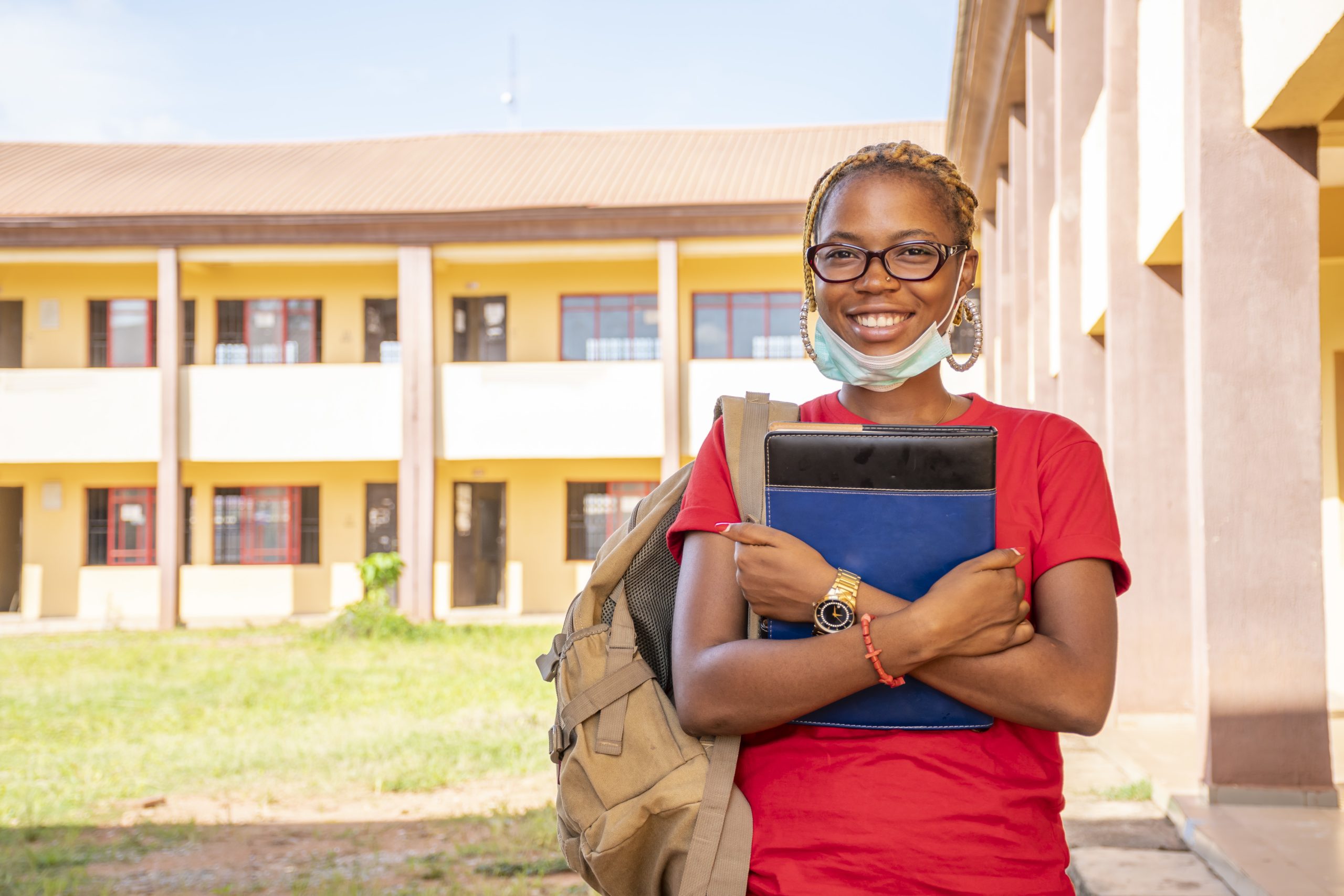Exploring the University of Mpumalanga, South Africa.

History and Background
The University of Mpumalanga is one of South Africa’s newer universities, officially established in 2013. It is located in the province of Mpumalanga, which is known for its natural beauty and rich cultural heritage. The establishment of the university was a significant step in addressing the need for higher education institutions in the region.
UMP was established to contribute to the socio-economic development of the province by providing accessible and quality higher education. The university’s mission is closely tied to its commitment to sustainability, and it aims to foster a deep understanding of environmental and socio-economic issues among its students.
Academic Programs
UMP offers a variety of academic programs, covering a range of disciplines. These programs are designed to meet the needs of students and the region’s economy. Here are some of the key academic areas and programs offered by the University of Mpumalanga:
Agriculture and Environmental Sciences
Programs Offered:
- Agriculture: This program covers a wide range of topics related to modern agriculture. Students learn about crop management, animal husbandry, and sustainable farming practices. Agriculture is a vital field in South Africa, given its significance in providing food and employment.
- Environmental Management: Environmental management programs at UMP focus on equipping students with the skills and knowledge to address environmental challenges. This includes sustainable land use, biodiversity conservation, and managing natural resources. Environmental management is crucial in a region like Mpumalanga, known for its ecological diversity.
Importance: The importance of offering programs in agriculture and environmental sciences at UMP cannot be overstated. Agriculture is a pillar of the South African economy, providing livelihoods for many communities. Given the country’s environmental diversity, understanding and managing its natural resources is of paramount importance to ensure sustainable development.
Business and Management
Programs Offered:
- Business Administration: UMP offers business administration programs that cover various aspects of business operations, management, and strategy. Students learn about finance, marketing, organizational behavior, and more.
- Management: Management programs at UMP provide students with the skills and knowledge necessary to lead and manage organizations effectively. This includes courses on leadership, strategic management, and human resource management.
- Entrepreneurship: Recognizing the importance of entrepreneurship in fostering economic growth, UMP offers programs in entrepreneurship. Students learn how to identify business opportunities, develop business plans, and manage small and medium-sized enterprises (SMEs).
Importance: Business and management programs are vital for producing graduates who can contribute to economic development. South Africa, like many countries, relies on a thriving business sector for job creation and economic growth. These programs prepare students to take on roles in various industries, from banking to manufacturing and entrepreneurship.
Education
Programs Offered:
- Foundation Phase Teaching: UMP offers programs specifically designed for educators who will work with young learners in the foundation phase of education. This is a critical area of education, as it lays the foundation for a student’s future learning journey.
Importance: Education programs are essential for addressing the needs of the local community. Training educators who are equipped to provide quality education in the foundation phase is crucial for ensuring that students receive a strong start to their academic journeys.
Health Sciences
Programs Offered:
- Nursing: Nursing programs at UMP prepare students for careers in healthcare. Nursing is a fundamental component of the healthcare system and plays a critical role in patient care and health promotion.
- Public Health: Public health programs focus on promoting and protecting the health of communities. Students in this field learn about health policy, epidemiology, health promotion, and disease prevention.
Importance: The importance of health sciences programs is evident in their contribution to healthcare delivery. Trained healthcare professionals are essential for providing quality medical services and improving the overall health of the community.
Humanities
Programs Offered:
- History: History programs at UMP explore the past, helping students understand the historical context of South Africa and the world. Studying history fosters critical thinking and cultural awareness.
- Social Sciences: Social sciences encompass a wide range of disciplines, including sociology, psychology, and anthropology. These programs help students understand human behavior and society.
- Language Studies: Language studies programs emphasize the importance of communication and language skills. Students may explore languages relevant to the region and beyond.
Importance: Humanities programs are vital for fostering a well-rounded education that includes the study of human culture, society, and history. They promote critical thinking, cultural understanding, and effective communication.
Science, Engineering, and Technology
Programs Offered:
- Information Technology: Information technology programs equip students with the knowledge and skills to work in the ever-evolving field of IT. This includes areas like software development, network administration, and cybersecurity.
- Computer Science: Computer science programs delve into the theoretical and practical aspects of computing. Students learn about algorithms, programming languages, and software engineering.
- Agricultural Engineering: Agricultural engineering is essential for developing and implementing innovative technologies in farming and agricultural processes.
Importance: Programs in science, engineering, and technology are crucial for addressing the demand for skilled professionals in these fields. In an increasingly technology-driven world, graduates in these areas play essential roles in innovation and economic development.
Tourism and Hospitality
Programs Offered:
- Tourism and Hospitality Management: These programs focus on preparing students for careers in the dynamic and growing tourism and hospitality industry. Students learn about hotel management, tourism marketing, and guest services.
Importance: Tourism and hospitality programs are significant in regions with cultural and natural attractions. In Mpumalanga, where tourism is a key economic driver, these programs help ensure that the industry is well-supported by trained professionals.
Sustainable Practices and Research
The emphasis on sustainability at the University of Mpumalanga (UMP) is a defining characteristic of the institution and reflects its commitment to responsible environmental and socio-economic practices. This commitment is particularly significant given the ecological diversity of the Mpumalanga region and the broader global context of environmental challenges. Here, we’ll delve into UMP’s approach to sustainable practices and research in more detail:
Environmental and Social Relevance
UMP’s focus on sustainability is rooted in the recognition that the Mpumalanga region is ecologically diverse, with a wealth of natural resources, including unique biodiversity. This ecological diversity provides both opportunities and challenges for the region. On the one hand, it’s a source of natural beauty, potential for ecotourism, and valuable ecosystems. On the other hand, it’s essential to address environmental conservation and sustainable resource management to protect these valuable assets.
Socio-economic challenges, including employment, infrastructure development, and community well-being, are also central to the region. UMP acknowledges the need to balance sustainable environmental practices with economic growth and social development, creating a harmonious and prosperous community.
Research for Sustainable Solutions
UMP actively promotes research aimed at addressing environmental and social challenges. The university encourages its faculty and students to engage in research that contributes to sustainable practices and solutions. Research areas might include:
- Biodiversity Conservation: Given the region’s rich biodiversity, research into the conservation of plant and animal species is essential. This may involve habitat restoration, species protection, and sustainable land use.
- Sustainable Agriculture: Agriculture is a significant part of the region’s economy. Research can focus on sustainable farming practices, crop management, and improving agricultural sustainability.
- Renewable Energy: Exploring and developing renewable energy sources, such as solar, wind, and hydroelectric power, can help reduce the carbon footprint and reliance on non-renewable resources.
- Waste Management and Recycling: Managing waste and promoting recycling practices are crucial for environmental preservation. Research into effective waste management solutions can contribute to a cleaner and healthier environment.
- Sustainable Tourism: Sustainable tourism practices can minimize the negative impacts of tourism on the environment while maximizing economic benefits. Research in this area can help develop responsible tourism strategies.
- Community Development: Addressing socio-economic challenges requires research into community development, employment opportunities, and infrastructure improvement.
Sustainable Practices Across Operations
In addition to research, UMP practices what it preaches by implementing sustainable practices across its own operations. These practices include:
- Sustainable Infrastructure: The campus is designed with sustainability in mind. This includes energy-efficient buildings, water-saving initiatives, and green spaces.
- Waste Management: The university promotes waste reduction and recycling on campus. This not only reduces the environmental impact but also sets an example for students and the community.
- Energy Efficiency: UMP takes measures to reduce energy consumption and promote the use of renewable energy sources where possible.
- Transportation and Commuting: Encouraging sustainable transportation options, such as cycling and carpooling, helps reduce the carbon footprint of the university community.
- Sustainability Education: The university integrates sustainability principles into its curriculum, ensuring that students are educated about the importance of sustainable practices.
Leadership in Sustainability
UMP’s vision of becoming a leader in sustainability education and practices is rooted in its recognition of the interconnectedness of environmental, economic, and social well-being. By actively participating in research and promoting sustainable practices, the university demonstrates a dedication to not only academic excellence but also to the betterment of the local community and the world at large.
The emphasis on sustainability at UMP not only prepares students to be responsible global citizens but also positions the university as a key contributor to the region’s environmental conservation and socio-economic development. Through research, education, and practice, UMP sets an example for institutions and communities alike, demonstrating the vital role that higher education can play in building a more sustainable and equitable future.
Campus Facilities
The University of Mpumalanga’s main campus is situated in the town of Mbombela (formerly Nelspruit). The campus provides a range of facilities to support students in their academic endeavors and personal development:
1. Libraries: UMP boasts a modern library equipped with a variety of resources, including books, journals, and electronic databases. The library is a vital hub for research and learning.
2. Laboratories: Science and technology students have access to well-equipped laboratories for practical work and experimentation.
3. Lecture Halls and Classrooms: The campus has lecture halls and classrooms equipped with the necessary technology for effective teaching and learning.
4. Student Accommodation: The university offers accommodation options for students who require housing. These facilities are designed to provide a comfortable living environment.
5. Sports and Recreation: UMP recognizes the importance of a balanced lifestyle. The campus has sports and recreation facilities for students to engage in physical activities.
6. Student Support Services: The university provides various support services to help students with their academic and personal needs, including counseling and career guidance.
7. Sustainable Infrastructure: UMP incorporates sustainable design and practices in its campus infrastructure, reflecting its commitment to environmental responsibility.
Vision for the Future
The University of Mpumalanga is dedicated to achieving its vision of becoming a leading institution in higher education with a strong emphasis on sustainability and relevance to its region. Some key elements of its vision for the future include:
1. Expanding Program Offerings: UMP aims to continually expand and diversify its academic programs to address the evolving needs of the region and its students.
2. Research Excellence: The university is committed to fostering a culture of research and innovation, particularly in areas related to sustainability and socio-economic development.
3. Community Engagement: UMP seeks to strengthen its ties with the local community and to play a central role in addressing regional challenges.
4. International Collaboration: The university aspires to build strong partnerships with international institutions to enhance global perspectives and opportunities for its students and faculty.
5. Sustainability Leadership: UMP is determined to be a leader in sustainability education and practices, both on its campus and in its community.
6. Student Success: The university is dedicated to providing the support and resources necessary for students to excel academically and personally.
Conclusion
The University of Mpumalanga, established in 2013, is a relatively new institution with a strong commitment to sustainability, relevance, and community engagement. It offers a wide range of academic programs, focusing on areas critical to the region’s development. Its beautiful campus in Mbombela provides students with the facilities and support needed to excel in their studies and personal growth.

